In the week following the launch of the Climate Change Advisory Council’s carbon budget proposals and the KPMG economic assessment report on the potential impact of emissions reduction for rural Ireland, Barry Murphy spoke to Government and opposition politicians to gather their views.
John Paul Phelan –
Fine Gael, Carlow-Kilkenny
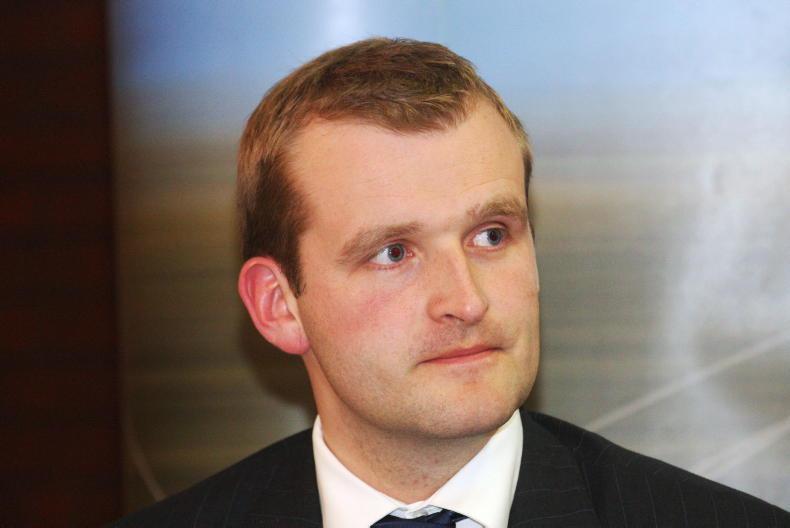
John Paul Phelan TD, Fine Gael, Carlow-Kilkenny.
John Paul Phelan was highly critical of Fine Gael’s Green Party colleagues in Government.
Reviewing the impact carbon reduction targets might have on rural areas and the need to diversify farm incomes, he described “the mess that is forestry licensing” as something which continues to cause an issue.
He asked why Ministers Eamon Ryan and Pippa Hackett have not done more and highlighted that “within 24 hours last week Minister Ryan contradicted himself on his position on herd reduction”.
On the emissions target to be set for agriculture in the Government’s Climate Plan, he said: “If it comes in the low 20s, it will be achievable but if closer to 30%, it won’t be.”
He said that the responsibility on emissions should be shared across all sectors and that “if we sacrifice efficient production in Ireland for inefficient production elsewhere”, it won’t help mitigate climate change.
Marian Harkin – Independent,
Sligo-Leitrim
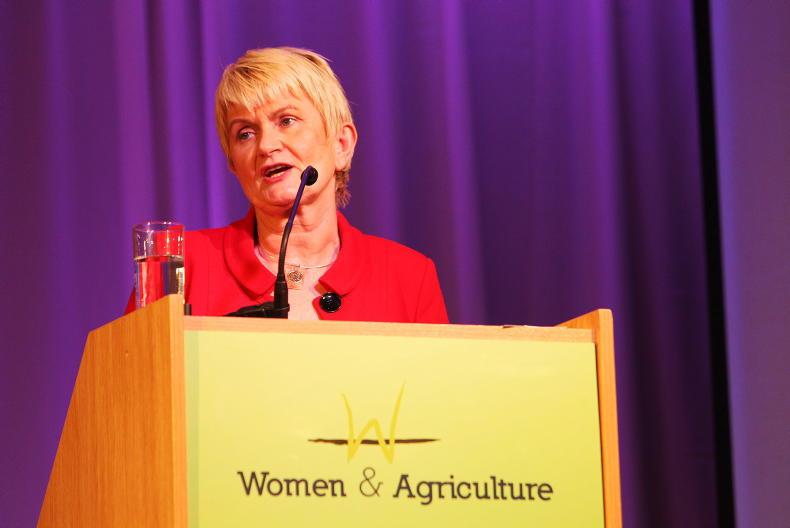
Marian Harkin TD, Independent, Sligo-Leitrim.
Marian Harkin said that within her constituency and the counties surrounding it, there are over 8,000 jobs directly dependent on agriculture and that “the risks [of unachievable emissions targets] are huge” for this cohort.
The former MEP drew attention to the line shared by IFA president Tim Cullinan that “it is a difference between livelihood and lifestyle” when comparing the changes farmers and everyone else are being asked to make on emissions reduction.
She said “there’s an essential difference between food production and drilling and consuming oil” and that “this real issue in how emissions are counted” must be addressed.
While noting that she did not want to “create division”, Harkin said she does “not want to see the suckler herd decimated in order to keep numbers up in the dairy herd”.
She also slammed Government support for farmers in Budget 2022 and the CAP strategic plan.
“Farmers were ghosted in the budget. What was wrong? Was the Department caught without ways to spend the money? What about the need to invest in farm research?
“If anyone tells me that the CAP as currently structured will manage climate change and has the supports and structures needed for farmers, I will explode.”
Lisa Chambers
– Fianna Fáil, Mayo
Senator Lisa Chambers said while farmers “have a part to play” in reducing emissions, she thinks “agriculture has been deemed worst in class” and that such criticism is unfair.
Highlighting the example of the “Department of Transport still buying diesel buses”, she said “we’re not focusing evenly across all sectors”.
“There needs to be direct financial supports to protect jobs in rural Ireland.”
She says it is her own party, Fianna Fáil, which has pushed for the lower end of the emissions reduction range (21-30%) indicated for agriculture prior to the formal announcement on the sectoral breakdowns in the Climate Plan.
Chambers outlined how Government must promote Ireland at COP26 as “one of the most carbon efficient producers of food globally” and said that farmers must be supported to sequester more carbon.
Michael Fitzmaurice
– Independent,
Roscommon-Galway
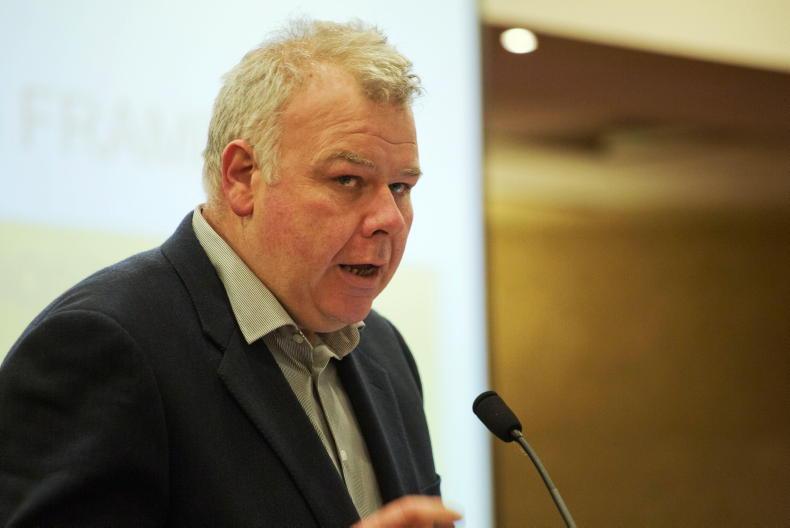
Michael Fitzmaurice TD, Independent, Roscommon-Galway. /David Ruffles
Michael Fitzmaurice says he doesn’t think “anyone in the farming community is going to accept reduction”.
“No is the very simple word. If we’re forced to reduce or cull the herd, I don’t think it will be tolerated.”
He described the developments in alternative ways to reduce emissions including “tech coming around the corner”, using mixed grass species and clover.
He was critical of the “hypocrisy that’s going on in the world at the moment” and contrasted the Irish farmer with “Joe Biden going around Italy with 40 cars” at last weekend’s G20 meeting.
Fitzmaurice said considering the future growth of the world population, the focus for leaders should be on how we are going to feed that population, not on reducing food production.
James O’Connor TD
– Fianna Fáil, Cork East
James O’Connor says he would question the judgement of any politician who says Irish agriculture can avoid reducing its carbon footprint and that the measures to achieve this must be supported with robust investment in diversifying farm incomes.
“I really do feel that some in rural Ireland have been led down the garden path by some politicians and told they won’t need to make any changes.”
O’Connor expressed “serious concern” around the political trajectory of climate change measures and suggested that his Green Party colleagues and the departments which they lead have not made sufficient progress in their work to diversify farm incomes through generation of on-farm renewable energy for the national grid.
The Cork TD outlined his full faith in party colleague Minister for Agriculture Charlie McConalogue and said that Government must “deliver a just transition”.
Richard Bruton
– Fine Gael,
Dublin Bay North
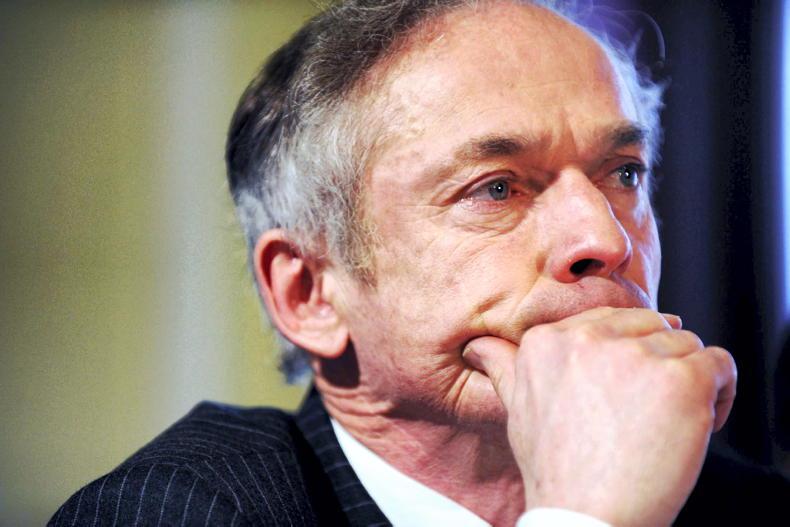
Richard Bruton TD, Fine Gael, Dublin Bay North. \ Liam Sweeney
A former Minister for Climate Action and Environment, Richard Bruton, while agreeable that emissions targets must be set carefully, said “no one sector will get a free pass”.
He warned that “politicians are faced with difficult choices” and that having concrete modelling on the economic impact of emissions targets on agriculture and other sectors must come prior to these choices.
“The reality will be that in some years’ time, it will be cheaper for other sectors to pay farmers to sequester carbon.”
He drew attention to the predicament of having to “make a punt on supposed future technology advancements” that will enable emissions reduction.
Matt Carthy
– Sinn Féin,
Cavan-Monaghan

Matt Carthy TD, Sinn Féin, Cavan–Monaghan. \Philip Doyle
Sinn Féin agriculture spokesperson Matt Carthy said: “Across the board, farmers are being robbed through Government’s failure to negotiate a proper CAP.”
He said that Ireland “shouldn’t get sidelined into a silly debate on reducing the cattle herd”.
Carthy stressed that any decisions made on reducing carbon emissions must first require economic assessment on the potential impact.
“First we need to carry out a farm-by-farm assessment on carbon storage and emissions in order to have a proper calculation of sequestration potential and farmers will then have to be financially rewarded for this.
“[Reducing emissions] is a huge challenge and one which we cannot shirk.”
He described the “complete hypocrisy” of the coalition for supporting the Mercosur trade agreement while simultaneously touting herd reduction here.
In the week following the launch of the Climate Change Advisory Council’s carbon budget proposals and the KPMG economic assessment report on the potential impact of emissions reduction for rural Ireland, Barry Murphy spoke to Government and opposition politicians to gather their views.
John Paul Phelan –
Fine Gael, Carlow-Kilkenny

John Paul Phelan TD, Fine Gael, Carlow-Kilkenny.
John Paul Phelan was highly critical of Fine Gael’s Green Party colleagues in Government.
Reviewing the impact carbon reduction targets might have on rural areas and the need to diversify farm incomes, he described “the mess that is forestry licensing” as something which continues to cause an issue.
He asked why Ministers Eamon Ryan and Pippa Hackett have not done more and highlighted that “within 24 hours last week Minister Ryan contradicted himself on his position on herd reduction”.
On the emissions target to be set for agriculture in the Government’s Climate Plan, he said: “If it comes in the low 20s, it will be achievable but if closer to 30%, it won’t be.”
He said that the responsibility on emissions should be shared across all sectors and that “if we sacrifice efficient production in Ireland for inefficient production elsewhere”, it won’t help mitigate climate change.
Marian Harkin – Independent,
Sligo-Leitrim

Marian Harkin TD, Independent, Sligo-Leitrim.
Marian Harkin said that within her constituency and the counties surrounding it, there are over 8,000 jobs directly dependent on agriculture and that “the risks [of unachievable emissions targets] are huge” for this cohort.
The former MEP drew attention to the line shared by IFA president Tim Cullinan that “it is a difference between livelihood and lifestyle” when comparing the changes farmers and everyone else are being asked to make on emissions reduction.
She said “there’s an essential difference between food production and drilling and consuming oil” and that “this real issue in how emissions are counted” must be addressed.
While noting that she did not want to “create division”, Harkin said she does “not want to see the suckler herd decimated in order to keep numbers up in the dairy herd”.
She also slammed Government support for farmers in Budget 2022 and the CAP strategic plan.
“Farmers were ghosted in the budget. What was wrong? Was the Department caught without ways to spend the money? What about the need to invest in farm research?
“If anyone tells me that the CAP as currently structured will manage climate change and has the supports and structures needed for farmers, I will explode.”
Lisa Chambers
– Fianna Fáil, Mayo
Senator Lisa Chambers said while farmers “have a part to play” in reducing emissions, she thinks “agriculture has been deemed worst in class” and that such criticism is unfair.
Highlighting the example of the “Department of Transport still buying diesel buses”, she said “we’re not focusing evenly across all sectors”.
“There needs to be direct financial supports to protect jobs in rural Ireland.”
She says it is her own party, Fianna Fáil, which has pushed for the lower end of the emissions reduction range (21-30%) indicated for agriculture prior to the formal announcement on the sectoral breakdowns in the Climate Plan.
Chambers outlined how Government must promote Ireland at COP26 as “one of the most carbon efficient producers of food globally” and said that farmers must be supported to sequester more carbon.
Michael Fitzmaurice
– Independent,
Roscommon-Galway

Michael Fitzmaurice TD, Independent, Roscommon-Galway. /David Ruffles
Michael Fitzmaurice says he doesn’t think “anyone in the farming community is going to accept reduction”.
“No is the very simple word. If we’re forced to reduce or cull the herd, I don’t think it will be tolerated.”
He described the developments in alternative ways to reduce emissions including “tech coming around the corner”, using mixed grass species and clover.
He was critical of the “hypocrisy that’s going on in the world at the moment” and contrasted the Irish farmer with “Joe Biden going around Italy with 40 cars” at last weekend’s G20 meeting.
Fitzmaurice said considering the future growth of the world population, the focus for leaders should be on how we are going to feed that population, not on reducing food production.
James O’Connor TD
– Fianna Fáil, Cork East
James O’Connor says he would question the judgement of any politician who says Irish agriculture can avoid reducing its carbon footprint and that the measures to achieve this must be supported with robust investment in diversifying farm incomes.
“I really do feel that some in rural Ireland have been led down the garden path by some politicians and told they won’t need to make any changes.”
O’Connor expressed “serious concern” around the political trajectory of climate change measures and suggested that his Green Party colleagues and the departments which they lead have not made sufficient progress in their work to diversify farm incomes through generation of on-farm renewable energy for the national grid.
The Cork TD outlined his full faith in party colleague Minister for Agriculture Charlie McConalogue and said that Government must “deliver a just transition”.
Richard Bruton
– Fine Gael,
Dublin Bay North

Richard Bruton TD, Fine Gael, Dublin Bay North. \ Liam Sweeney
A former Minister for Climate Action and Environment, Richard Bruton, while agreeable that emissions targets must be set carefully, said “no one sector will get a free pass”.
He warned that “politicians are faced with difficult choices” and that having concrete modelling on the economic impact of emissions targets on agriculture and other sectors must come prior to these choices.
“The reality will be that in some years’ time, it will be cheaper for other sectors to pay farmers to sequester carbon.”
He drew attention to the predicament of having to “make a punt on supposed future technology advancements” that will enable emissions reduction.
Matt Carthy
– Sinn Féin,
Cavan-Monaghan

Matt Carthy TD, Sinn Féin, Cavan–Monaghan. \Philip Doyle
Sinn Féin agriculture spokesperson Matt Carthy said: “Across the board, farmers are being robbed through Government’s failure to negotiate a proper CAP.”
He said that Ireland “shouldn’t get sidelined into a silly debate on reducing the cattle herd”.
Carthy stressed that any decisions made on reducing carbon emissions must first require economic assessment on the potential impact.
“First we need to carry out a farm-by-farm assessment on carbon storage and emissions in order to have a proper calculation of sequestration potential and farmers will then have to be financially rewarded for this.
“[Reducing emissions] is a huge challenge and one which we cannot shirk.”
He described the “complete hypocrisy” of the coalition for supporting the Mercosur trade agreement while simultaneously touting herd reduction here.








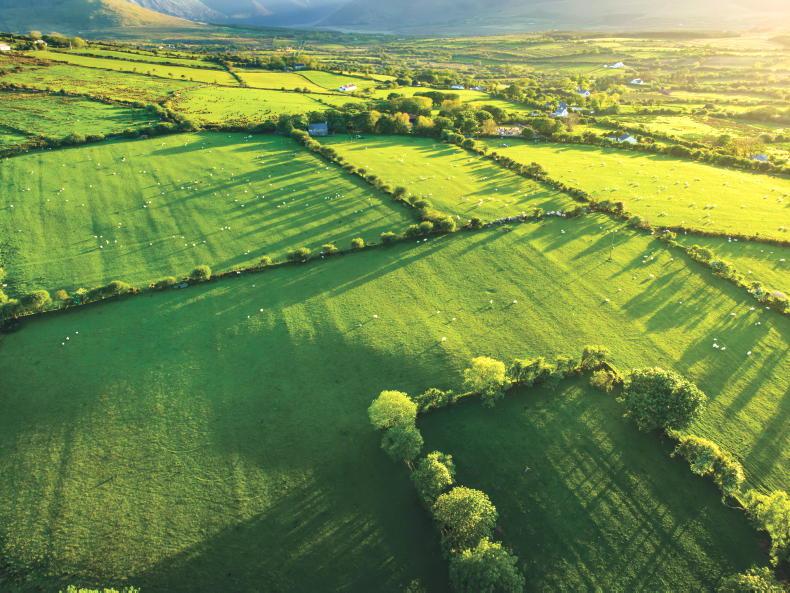



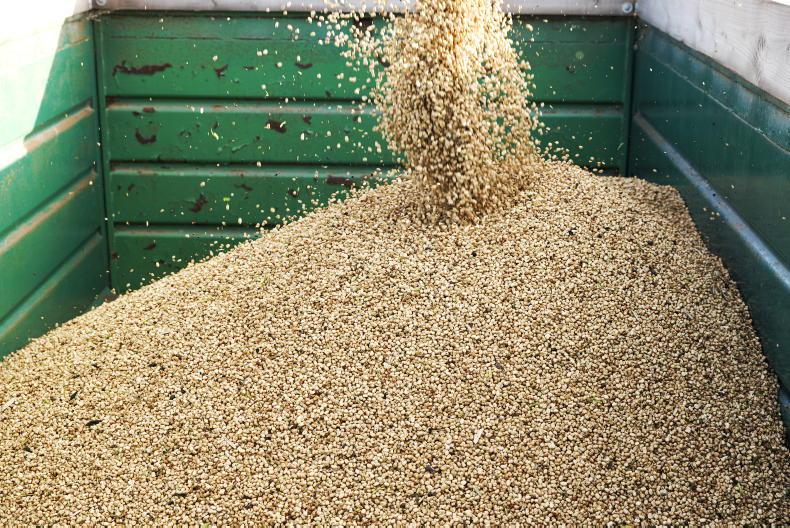
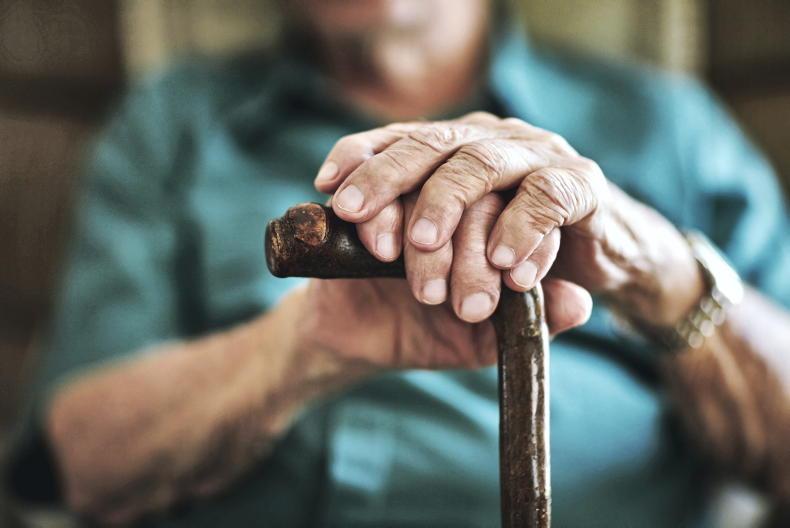
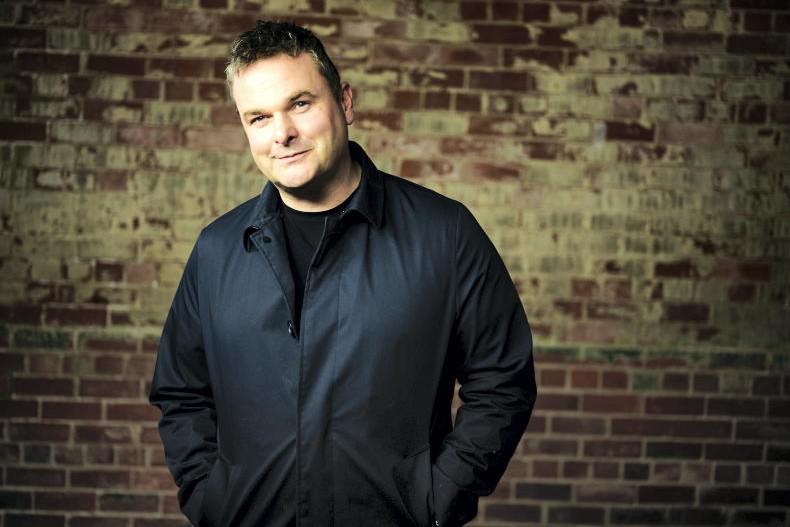
SHARING OPTIONS